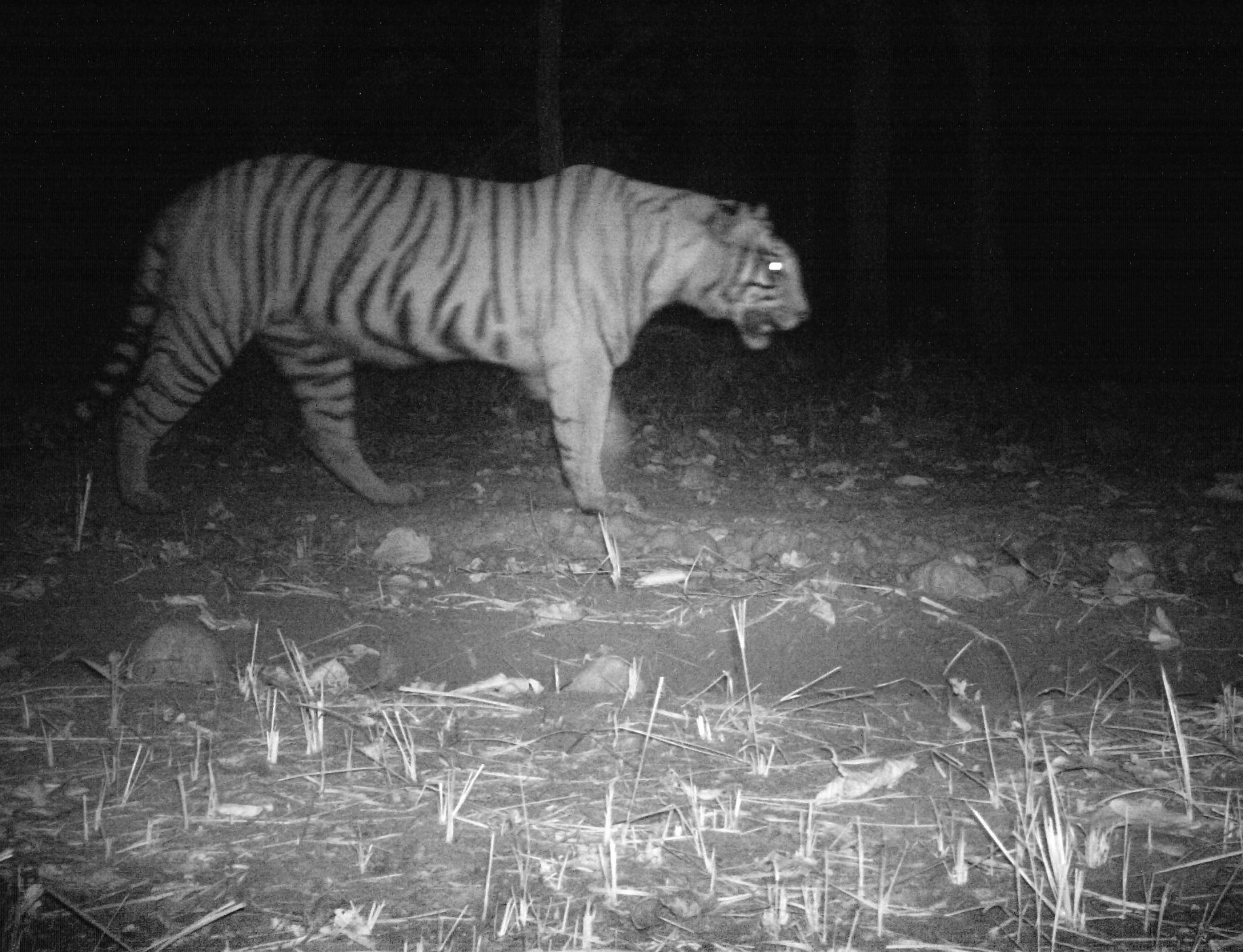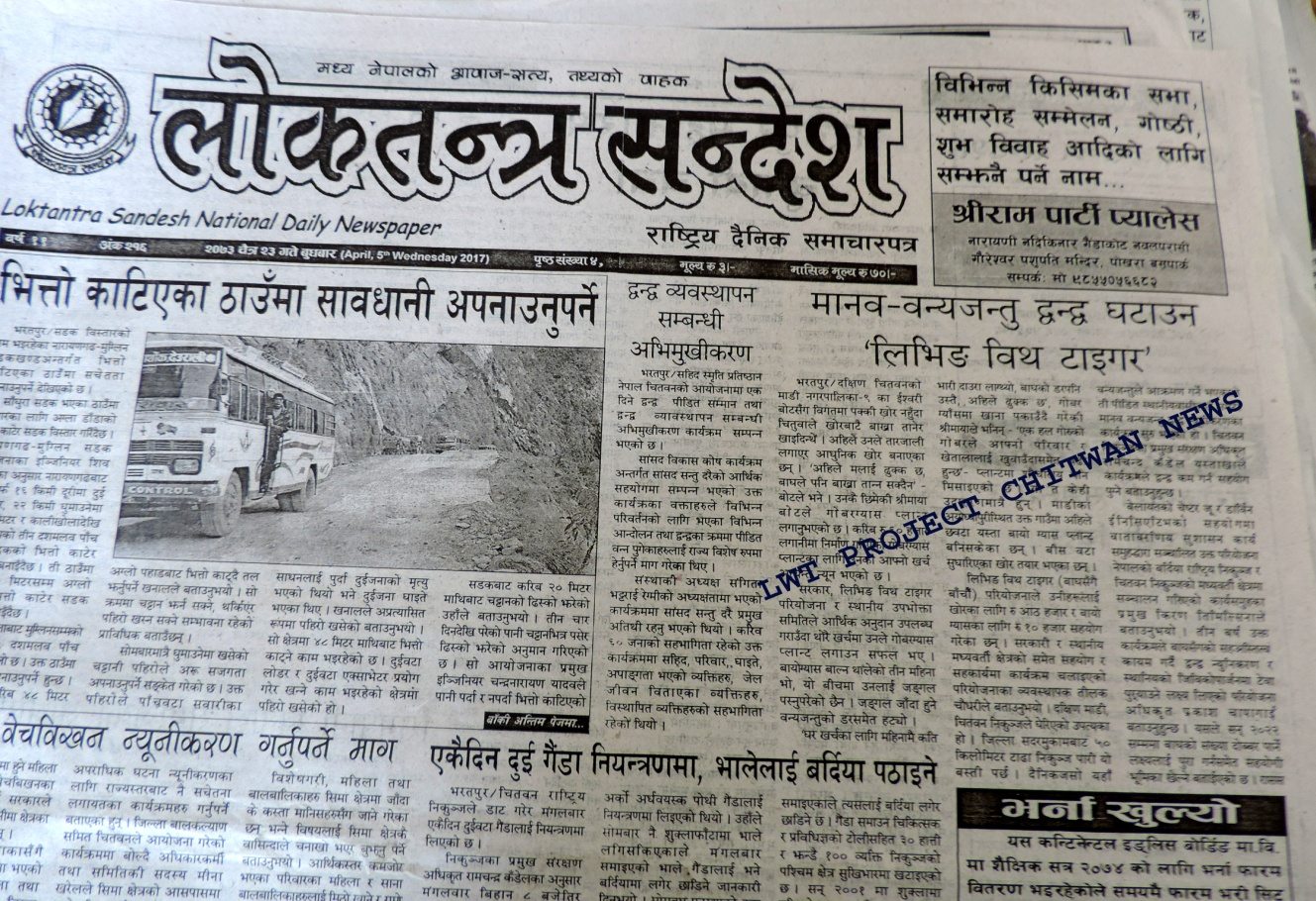Our Living with Tigers project in Nepal has been working on livelihood and conservation interventions by supporting the construction of predator-proof pens and biogas plants in various local communities. These interventions are benefiting both the local villagers as well as the biodiversity in Chitwan and Bardia, the two national parks the conservation project focuses on.
Recently, some Nepalese newspapers and online platforms took an interest in the project and a number of articles have been published nationally praising the positive changes that local people experience thanks to the project.
Prakash Chapagain, a Living with Tigers Field Officer based in Chitwan National Park, tells us more:

“The articles have outlined the activities conducted in the different sites of the project and also highlighted the perceptions that local communities and stakeholders have in regard to the project. These articles were published on Kantipur National Daily, Loktantra Sandesh National Daily, Tahakhabar and Setopati Online. The articles reflected the positive impact that the predator-proof pens and biogas plants have brought to local communities in the village of Madi.

“Ishwori Bote, a 48-year-old resident of Tamta-anar Ganeshkunja village explained that he lost several of his goats in the past to leopards that managed to get inside his old pen. However, he added that he is now confident that the new predator-proof pen provided by the Living with Tigers project would keep his goats safe! He said: ‘I am happy and confident that tigers or leopards cannot take my goats away anymore’. And he has also increased the size of his herd thanks to the project.
“Srimaya Bote, a woman from a marginalized group in Chitwan added that thanks to the support of the LwT project, she has been able to build a biogas plant in her community. Srimaya has since been able to enrol her children in school and doesn’t need to collect wood from the forest anymore thanks to the biogas plant installation. She explains:
My family is now safe from wild animals and we do not need to go to the forest in search of fuel wood anymore which means we have no chance of interacting with tigers and leopards.
“Ram Chandra Kandel, Chief Conservation Officer of Chitwan National Park stated: ‘These types of interventions are crucial for human wildlife conflict mitigation and are always carried out with a strong coordination from the Park Office’.
“Another news article highlighted how the installation of biogas plants has transformed the lives of locals in Bardia. Local villager, Hari Bahadur Buda explained that he had not needed to collect wood from the forest for more than six months now and added that he also felt much safer than before. Ramesh Thapa, Conservation Officer of Bardia National Park said: ‘Biogas has brought the illegal collection of fuel wood within the national park to an end.’
“These are only a few examples of how the project has already managed to impact the lives of many local communities in Nepal but many more are expected to benefit from the project in the future.”